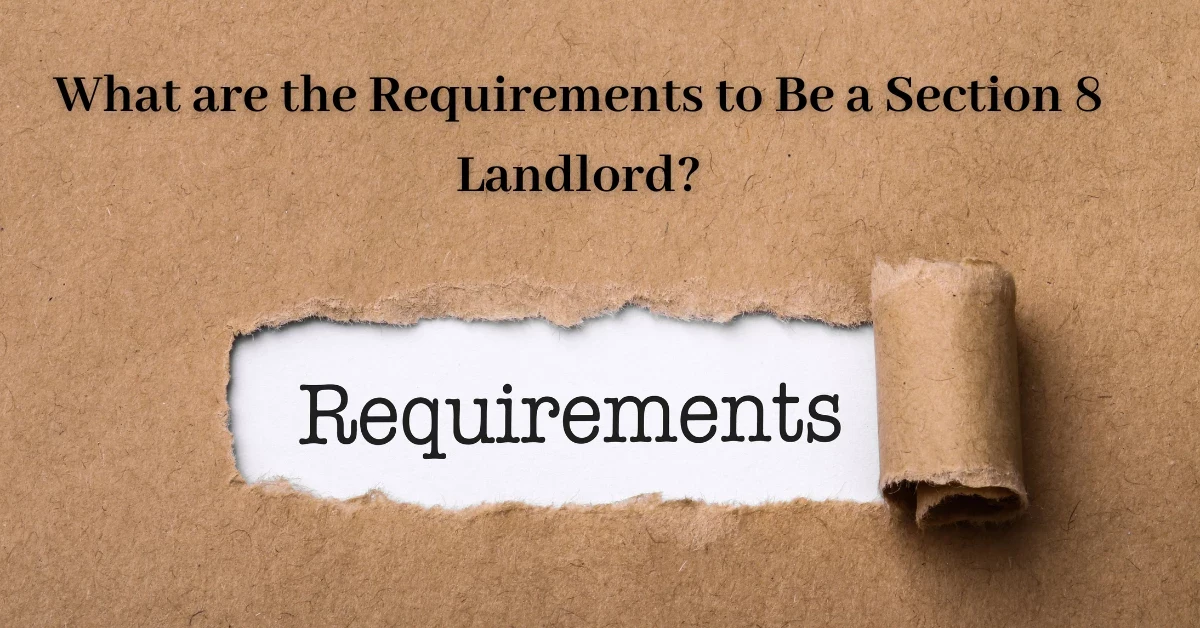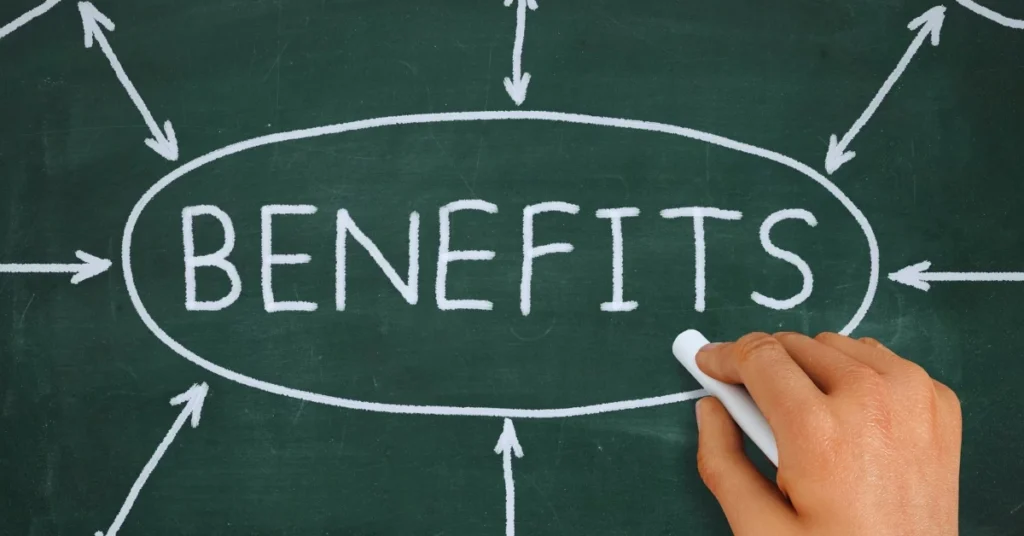What are the Requirements to Be a Section 8 Landlord?
To become a Section 8 landlord, you must meet certain requirements set forth by the Department of Housing and urban development (hud). These include meeting specific property standards, undergoing a housing inspection, and setting rent prices within hud guidelines.
Becoming a Section 8 landlord requires more than just owning a rental property. The Department of Housing and urban development (hud) sets specific requirements that landlords must meet to participate in the Section 8 program.
These requirements include ensuring properties meet certain standards for safety and sanitation, passing a housing inspection, and setting rent prices within hud guidelines.
Additionally, landlords must agree to certain lease terms and participate in ongoing assessments of the rental property. Understanding and meeting these requirements is essential for landlords looking to participate in the Section 8 program.

Understanding The Basics Of Section 8

What Is Section 8?
Section 8 is a housing assistance program that helps low-income individuals and families afford safe and decent housing by providing rent subsidies.
It is officially known as the housing choice voucher program and is administered by us department of Housing and urban development (hud).
Some of the key facts about section 8 include:
- The program provides housing assistance to eligible applicants, who receive vouchers to help pay a portion of their rent.
- Section 8 is available across us, and the eligibility requirements and rules for the program vary by state and locality.
- Property owners or landlords who participate in the program receive regular rental payments from the government and in exchange, must comply with certain rules and obligations.
How Does The Section 8 Program Work?
Under the Section 8 program, eligible households receive housing vouchers that they can use to rent an apartment or house from a participating landlord.
These vouchers typically cover a portion of the rent, while the tenant is responsible for paying the remainder of the rent to the landlord.
The amount of assistance a tenant receives is based on several factors, including the size of their household, their income, and the average rent for similar properties in their area.
The government pays the difference between what the tenant can afford and the actual cost of the rent.
In order to participate in section 8, landlords must have their properties inspected and approved by the local public housing authority.
The property must meet certain minimum standards for safety, sanitation, and habitability.
Once approved, the landlord signs a contract with the public housing authority and agrees to rent the property to a Section 8 tenant.
Who Is Eligible For Section 8 And How Are They Selected?
To be eligible for the Section 8 program, applicants must meet certain income guidelines and prove that they are, citizens or legal residents.
The precise eligibility requirements vary by state and locality.
But typically, families earning less than 50% of the median income for their area are considered to be eligible for the program.
In addition to income requirements, section 8 applicants must also pass a background check and provide references from previous landlords.
Once the application has been processed, the public housing authority will determine if the applicant meets all of the requirements for the program.
If more people apply for Section 8 than there are vouchers available, the public housing authority will use a system of preferences and priorities to determine who receives assistance.
Priority may be given to families with children, elderly individuals, and those with disabilities.
What Are The Benefits Of Becoming A Section 8 Landlord?
Becoming a Section 8 landlord can offer numerous benefits, including:

A steady source of rental income
Under the Section 8 program, landlords receive a portion of the tenant’s rent directly from the government each month.
This can provide a reliable and consistent income stream.
Lower vacancy rates
There is often high demand for Section 8 housing, particularly in areas where affordable housing is limited.
This can help landlords to keep their properties occupied and minimize vacancy periods.
Lease compliance
Tenants who receive housing vouchers through Section 8 are required to abide by certain rules and regulations.
This can include maintaining their property, paying their portion of the rent on time, and not engaging in criminal activity on the premises.
If a tenant violates the lease agreement, the landlord can report them to the public housing authority and potentially have them removed from the program.
Improved property conditions
In order to participate in the Section 8 program, landlords must have their properties inspected and approved by the public housing authority.
This inspection can help to identify any issues that need to be addressed, such as problems with plumbing, heating, or electrical systems.
As a result, participating landlords may be more motivated to maintain and improve their properties.
Meeting The Requirements To Become A Section 8 Landlord
Making the decision to become a Section 8 landlord can bring a range of benefits, such as a steady source of rental income and guaranteed monthly payments.
However, the process of becoming a Section 8 landlord can seem daunting and complex.
The General Requirements For Landlords Participating In Section 8
- Property must meet hud’s housing quality standards (hqs).
- The landlord must agree to participate in the Section 8 program.
- Rent must be reasonable in comparison to rent for other properties in the area.
- The property’s location must be in an area that accepts Section 8 housing vouchers
- Tenants must follow the program’s guidelines.
Who Can Participate In The Section 8 Program As Landlords?
All landlords can participate in the Section 8 program, whether they are private individuals, corporations, or nonprofit organizations.
However, the landlord must meet the program’s eligibility requirements and have a property that meets the program’s standards.
What Documentation Is Needed To Participate In The Section 8 Program?
To participate in the Section 8 program, landlords must submit the following documentation:
- Property registration documents.
- A w-9 form.
- A copy of the lease agreement.
- Documentation of the property’s ownership.
- Completion of a hud application form.
The Inspection Requirements For Section 8-Approved Properties?
Before a property is approved for section 8, it must undergo an inspection process to ensure it meets hud’s housing quality standards (hqs).
These standards include safety, sanitation, and habitability requirements such as adequate lighting, ventilation, and plumbing.
The inspection process can take up to two weeks.
How Do You Advertise And List Your Property As A Section 8-Approved Rental?
There are several ways to list your property as a Section 8-approved rental.
You can use the online Section 8 property listing service, advertise on social media, or list with local Section 8 offices.
Ensure that you mention that your property is section 8 approved, and provide accurate information about the rental cost and eligibility criteria.
Becoming a Section 8 landlord requires meeting several requirements, including property standards, eligibility criteria, and passing required inspections.
To successfully navigate the process, proper documentation, and accurate communication are crucial.
However, once you become a Section 8 landlord, you can enjoy several benefits, including a steady income source and the knowledge that you are making a positive impact in your community.
FAQs
What Is Section 8 Landlord Eligibility?
To qualify as a Section 8 landlord, you need to meet hud’s requirements, such as owning an eligible property, passing a housing quality inspection and setting the rent within the fair market rent limits.
How To Become A Section 8 Landlord?
To become a Section 8 landlord, you need to follow these steps — find out the property eligibility, register the property as a rental unit, schedule a housing quality inspection, sign the housing assistance payment contract, and list your property with the local housing agency.
What Is The Process For Section 8 Landlord Application?
To apply for section 8 landlord application, you need to submit an application, list your property, and have it inspected by the local housing authority. Once the property passes inspection, you can sign the housing assistance payment contract and receive rent payments.
What Are The Benefits Of Being A Section 8 Landlord?
The benefits of being a Section 8 landlord include a steady stream of rental income, a guarantee of receiving payments from hud through the local housing authority, and the satisfaction of providing affordable housing to low-income families.
Conclusion
Ready to make a difference? As a Section 8 landlord, you’ll need to meet housing quality standards, agree to fair market rent, and adhere to non-discriminatory practices.
With these in place, you can offer homes to those who need it most, empowering communities one lease at a time.
References
https://www.usa.gov/housing-voucher-section-8
https://www.hud.gov/topics/housing_choice_voucher_program_section_8